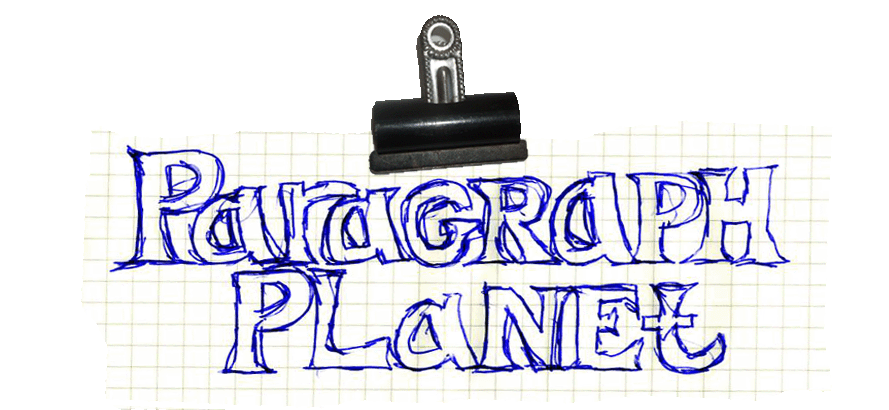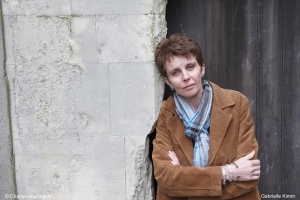









on


GABRIELLE KIMM

Image (C) Charlie Hopkinson 2010 First of all, thank you so much for having me on the Paragraph Planet website! The Courtesan’s Lover has at its centre a secondary character from my first book, His Last Duchess. Francesca Felizzi, former mistress to the Duke of Ferrara, is now an aspiring courtesan in Naples. She is beautiful and ambitious, and she loves the power she knows she can wield over the men who pay for her company. But when she is visited by an inexperienced seventeen year old (who features in the 75 word paragraph which appeared on Paragraph Planet on 9th January!) it quickly becomes clear to Francesca that despite her many admiring patrons, she has never truly been loved. Suddenly, her glittering and sumptuous life feels little more than a gaudy façade. And then another unexpected encounter brings with it devastating implications which plunge Francesca and her two daughters into the sort of danger she has dreaded ever since she started walking the streets all those years ago. How did you get drawn to historical fiction?
Well, in fact it all happened by accident. I’d actually never really thought about writing Historical Fiction at all, but the inspiration for my first book, His Last Duchess, dictated the era and the setting of the novel I was about to write. I had decided that I wanted to tell the back story to Robert Browning’s dramatic monologue, My Last Duchess, and, given that the sinister narrator of Browning’s poem is the fifth duke of Ferrara (a real, historical nobleman), I realized I had no choice! The story would have to be set in northern Italy in the mid-sixteenth century. I knew next to nothing about either the Renaissance period or Italy when I started planning my novel – for a time at the start, I did wonder what on earth I had let myself in for! But as soon as I began researching, I realized that I absolutely loved writing about the past. Because I had to research every tiny little aspect of the story – from what people ate, to what they wore, to who was Pope at the time, to how to paint a fresco, to how to light a candle from a tinderbox – the initial writing took ages and was very painstaking – but I found the whole process really enjoyable. I’m not sure I would classify myself as a historical novelist, though, funnily enough. I’m just fascinated by trying to explore the human condition; I just like to write stories about people, and the people I have written about so far have happened to live in sixteenth century Italy. What is your favourite aspect of the writing process?
Does it sound really pathetic to say I love all of it? The various stages of the creation of a novel are so different – I love the fizzing excitement of the hatching of the initial idea, and the early, messy, obsessive business of first drafting. Getting to know one’s characters and learning how they think and feel and behave takes time, and roughing out the plot can feel clunky and awkward to start with, but then it all suddenly shifts into a new gear and takes off, and that feels great! I really love the research – and am fascinated by how sometimes it can be an unexpectedly two-way process. On a number of occasions, I’ve searched for a particular piece of information, and discovered something surprising in the course of the search, something which I’ve loved so much I’ve changed the plot to be able to incorporate it! The much more mechanical business of editing is also enjoyable – whether that be large-scale structural editing or the more nit-picking business of copy-editing. Perhaps the only stage of the process I don’t care for is proof-reading. I think I read both His Last Duchess and The Courtesan’s Lover aloud, right the way through, four times each, before I was sure I’d picked up every typo (and that was in conjunction with a wonderful copy-editor!). How did your novel change over successive drafts?
The Courtesan’s Lover began life as my dissertation for the MA in Creative Writing I did at the University of Chichester, and the book went on to be completed soon after I graduated. This story didn’t change nearly as much as my first novel (which underwent nine drastic re-drafts!) but I suppose the biggest change took place when I sent what I hoped was a finished manuscript to my agent. She had several very astute suggestions for its improvement, which involved moving what I had presumed to be the opening chapter and starting the story from a totally different angle. I was thrown for a bit, but quickly realized that she was quite right - that erstwhile opening chapter is now chapter seven. The new opening involved introducing a completely new character and a whole new subplot. I then worked with a wonderful editor right through the structural changes, through to the copy-edit. There were shed-loads of small alterations, but none as drastic as that new beginning. How important is an online presence to a writer?
In today’s market, I’d say it’s fundamental. This came as a bit of a shock to me when His Last Duchess first came out, as I’m not particularly computer-literate, and had never even considered using Twitter or Facebook before publication, but I was encouraged to start using both social networking sites by my publishers. Obviously it’s a way to promote the books, but I’ve been even happier with a totally different aspect of it all – I’ve become part of a real community of writers online (and have met a few of them in the real world too!) . I knew I would need a website, right from the start, and was very keen to do this. I’m not sure I know how best to make use of it yet, though – any suggestions gratefully received! I’ve had a couple of readers ask if I have a Newsletter – this is something I’m about to explore. Any advice to budding novelists?
Read. Read some more. And then do a bit of reading. Seriously, every successful writer is an avid reader. Read widely – from the classics to the shortlists for the big prizes – read in the genre in which you want to write, but read widely around it too. Read like a writer – look for HOW the writer has had the effect they’ve had, and then try to analyse why it works. Observe constantly – look at how people move and talk and react, listen to what they say (I’m not actually advocating eavesdropping, but you know what I mean!). Keep notes on what you see and hear and read, and work out how you would express things in your own writing . Always have that channel open for inspiration – you never know when it will strike! I rely very much on my lovely writing group – we are all graduates of the same MA in Creative Writing course, and have worked together now for years. Having an unbiased and constructively critical eye cast over what you’re writing is really helpful. You want to find someone who you trust to know what they’re talking about, and who you know will give you a genuinely honest opinion. It’s perhaps useful to know, if you are an aspiring writer crippled with self-doubt, that pretty much every writer I know (some of them best-selling success stories) is regularly plagued by a dreadful lack of confidence. I often have a sort of Orwellian doublethink going on – I can feel really excited by something I’ve just written, and at the same time, be terrified that it’s a load of rubbish! You just have to write through the anxiety, though, and stick with it. A lovely former tutor of mine, a brilliant writer called Dave Swann, once told me that you should ‘concentrate on the process, write for the love of it, and stop worrying about the outcome.’ It’s fantastic advice – well worth taking. Click here for Gabrielle's website
